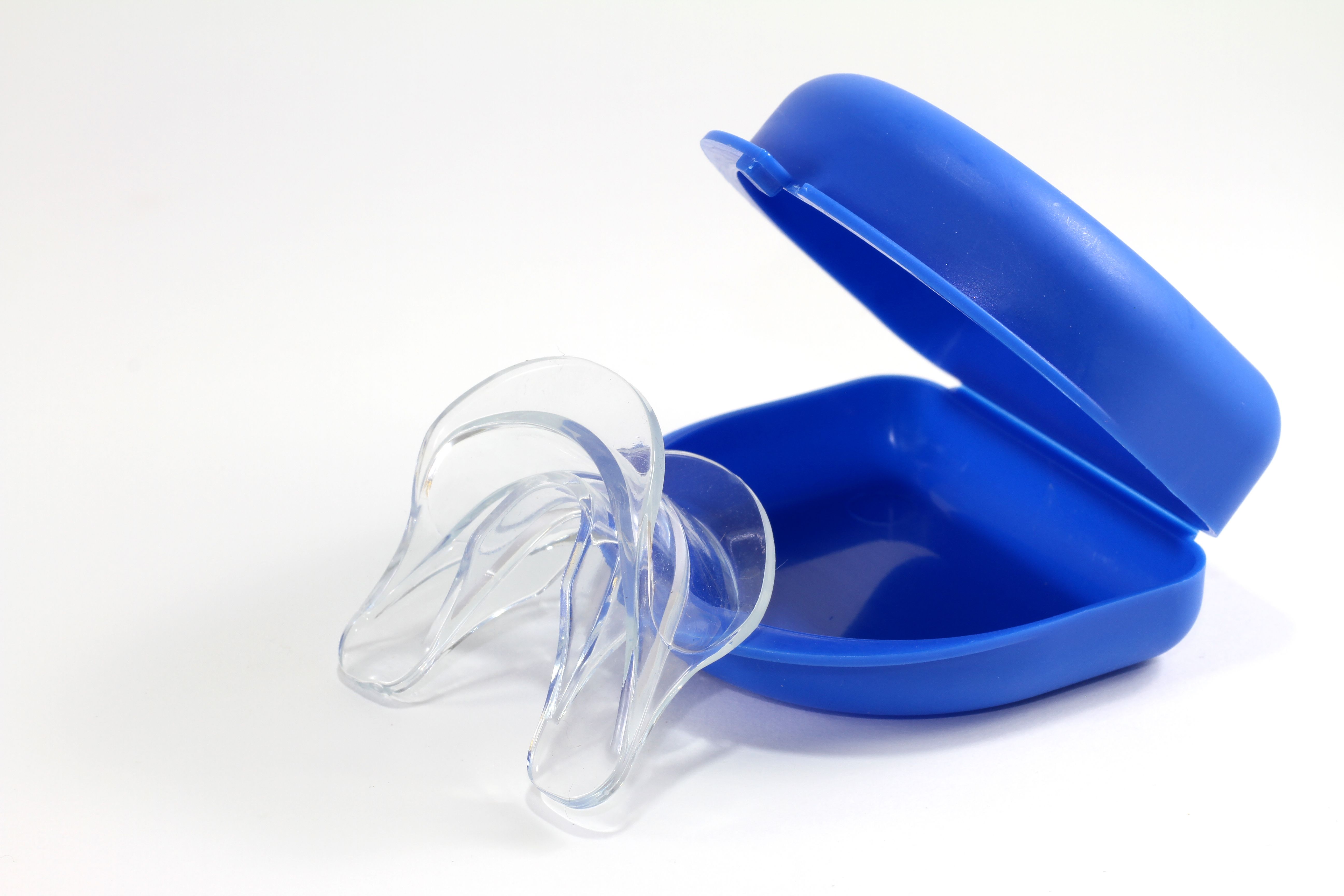Mouth Guards

It’s that time of year. The sun is shining, kids will be getting out of school soon, and the summer fun will begin. From soccer to basketball to hanging at the skate park, there’s a large probability that your kids will be enjoying the sunshine and fun that comes with summer sports.
With sports, however, come injuries. And some of the most common injuries Dr. Bullard sees in the office are from sports. Things like fractured teeth, missing teeth, and broken teeth are most often the result of a trauma that occurred during a sport.
The cost to repair these injuries is often expensive, and oftentimes an injury to a tooth can lead to biting and speech issues down the line if they’re not treated properly.
We recommend any child playing a sport that could involve contact with another child or ball be fitted with a mouthguard. This will help ensure that they’re protected and that the probability of sustaining an injury is greatly reduced.
What is a mouthguard?
A mouthguard is a custom made flexible piece of plastic that fits your child’s mouth perfectly. Think of it like a helmet for the mouth. It protects the teeth, gums, lips, and arches from injury.
For example, if an individual is playing a sport and takes an elbow to the mouth, not only could they knock a tooth out, their lips would press against the tooth and could get cut pretty badly. We’ve seen this happen to patients to the point where they actually need several stitches to save their lips.
Now, consider a person with a mouthguard. They take an elbow to the face and their teeth have a plastic guard protecting them. Their lips are less likely to get cut because the plastic helps dull the surface.
How do I get a mouthguard?
The process of getting a mouthguard is typically two-step. You’ll come into the office, where the doctor will examine your mouth and take impressions of your teeth. Everyone’s mouth and teeth are shaped differently, which is why it’s important these impressions are taken.
Once we have the impressions we send them to the lab, where the mouthguard is constructed. After it’s made it is sent back to us. You’ll come in for a final appointment where the doctor will make sure it fits properly and make any adjustments while you’re there.
Caring for a Mouthguard
Once you have your mouthguard, it’s important that you take care of it. This will ensure it lasts a long time. Additionally, proper care of your mouthguard will reduce the bacterial build up and any odors that might occur as a result.
Avoid chewing the mouthguard, as that can weaken its integrity and reduce its ability to protect your mouth.
After each use wash your mouthguard with toothpaste and allow it to air dry. Place it on a clean, dry washcloth so that it doesn’t end up sitting in a small pile of water.
Finally, visit your doctor regularly so he can make sure your guard is doing its job and your mouth is healthy.

